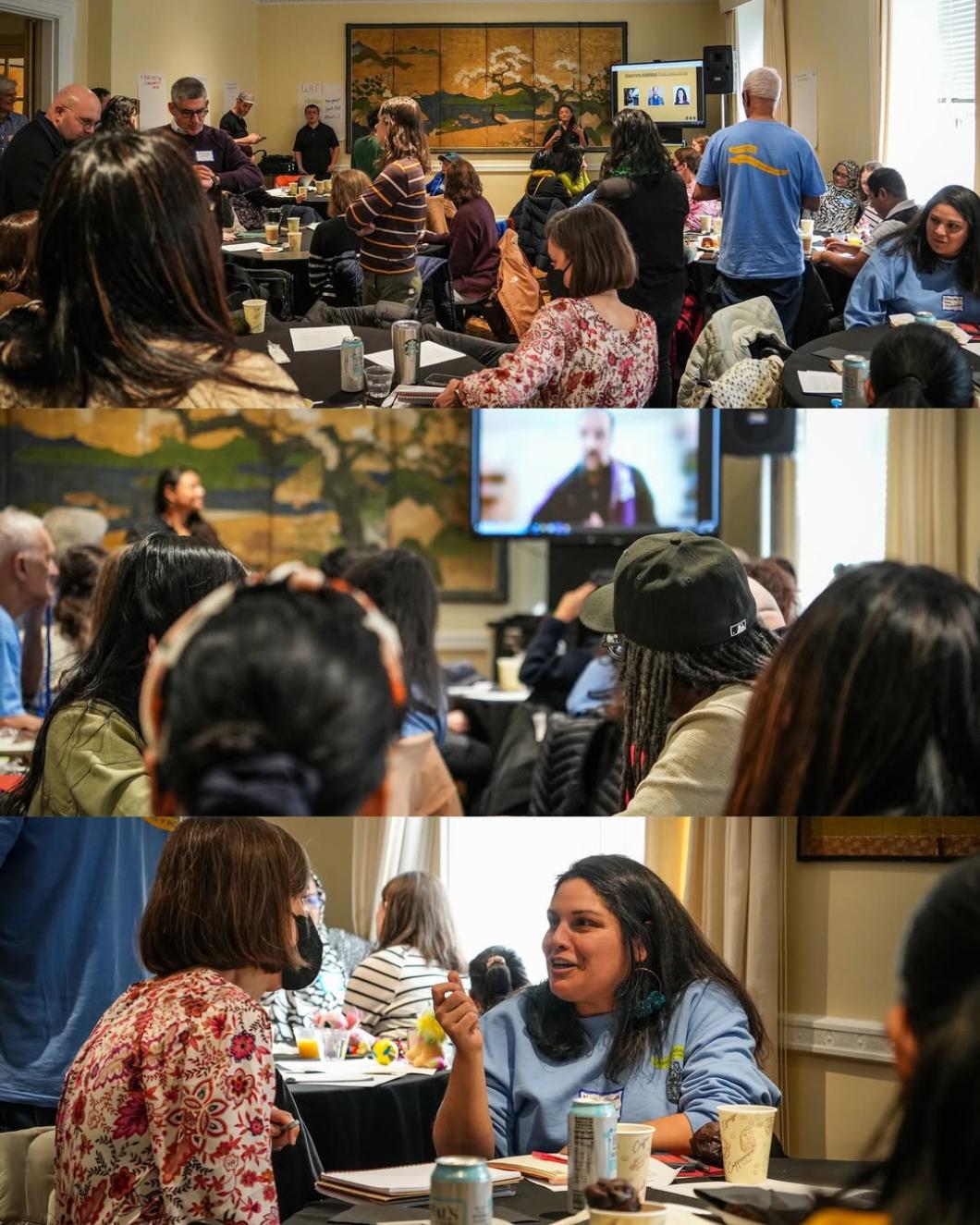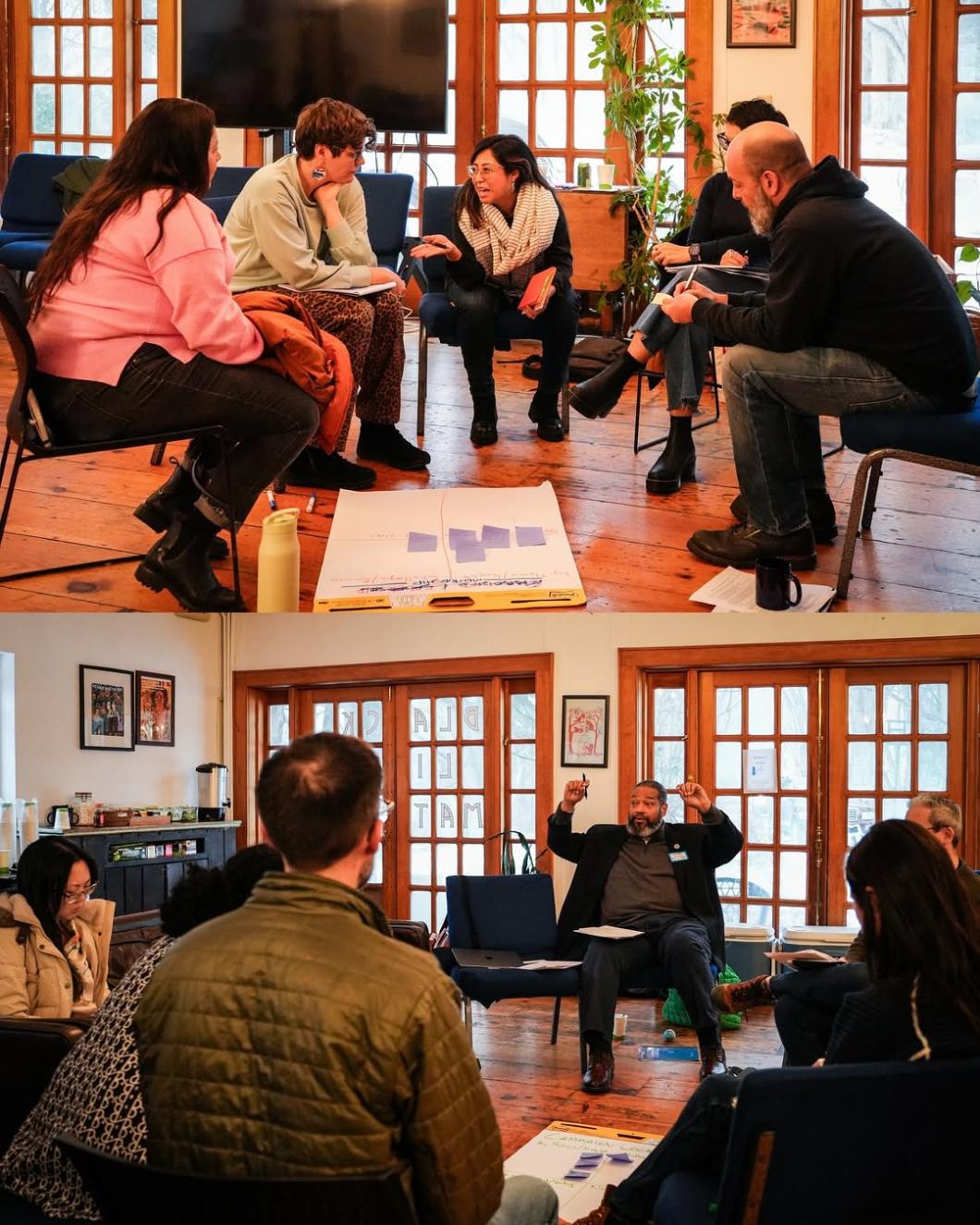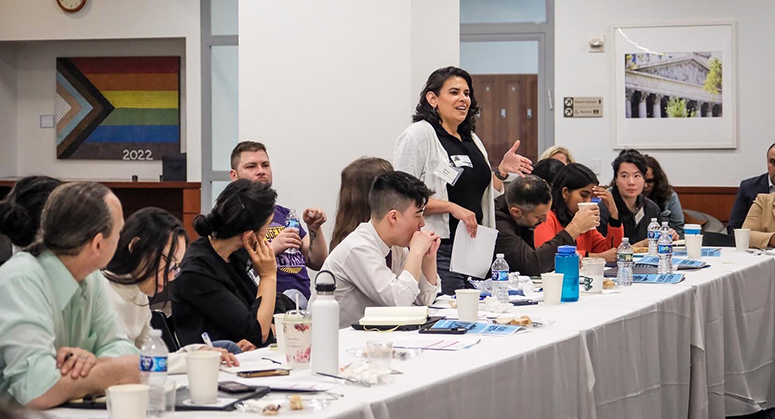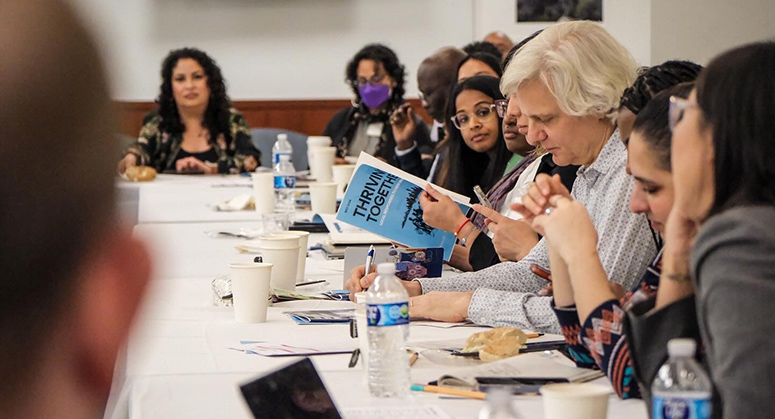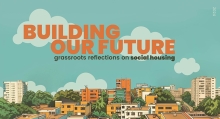The Initiative for Community Power partners with power-building organizations and the public sector to confront endemic inequality of political voice and power, and to foment and realize innovative and effective strategies that create community power and democratic engagement. The Initiative organizes faculty and student partnerships with racial and economic justice organizations in support of their campaigns, and to help conduct and publish research necessary to advance this work. We also spark learning and create comm
Recent Projects
Worker Solidarity Brunch, Breaking Bread & Building Power
Policy experts, labor organizers, and community organizations came together on February 8, 2025 to discuss the challenges workers are facing and to strategize for rights and protections in this pivotal moment. The Initiative for Community Power is committed to working with front line organizers and policy experts to protect NY workers.
Power to Win Convening
ICP co-sponsored the Power to Win Report in July 2024. The report highlighted possible interventions to overcome the challenges facing the progressive movement today. Building on these interventions, ICP co-sponsored the first Power to Win Convening, which brought together more than 30 movement leaders to plan real strategies to meet the needs of the moment.
Thriving Together
In May 2024, ICP hosted the Thriving Together Convening, in collaboration with Local Progress, Make the Road NY, the Action Lab, and the Immigration Justice Clinic at Cardozo Law. We spent time with about 40 participants, including local elected and administrative officials, immigration attorneys, organizers, funders and policy experts, to delve deeply into organizing approaches that can improve conditions and policies for recent arrivals in New York City and receiving cities around the country. We are committed to finding ways of collaborating on our work to turn the mislabeled “crisis” of migration into an opportunity to respond to the needs of our communities in new ways.
Legal Materials and Resource Guides
In collaboration with Make the Road New York, the Initiative created Casita, a comprehensive resource guide for recently-arrived, bussed migrants to New York City.
ICP worked with New York Communities for Change to create legal resource materials and to conduct a needs assessment of their membership base. We are currently working with them on their efforts to support improved housing code enforcement and environmental building retrofits across New York State.
ICP provided ongoing support for New York State organizations, such as Citizen Action of New York, VOCAL NY, and The Action Lab.
Challenging Unjust Immigration Practices and Paving New Pathways for Recent Arrivals
We are partnering with the Envision Freedom Fund and the Immigration Justice Clinic at Cardozo Law School to challenge ICE’s pattern and practice of indefinitely retaining an estimated hundreds of millions of dollars of low-income immigrants’ bond money well beyond when they can legally do so. ICP has supported organizing efforts that have led to a national putative class action lawsuit filed in October 2024 against ICE seeking to recover around $300 million of bond money.
The ICP partnered with Justice Together on the Community and Movement Lawyering Learning Exchange. Justice Together is a unique collaboration launched in 2020 with a decade-long vision to ensure that people who use the UK immigration system can access justice fairly and equally.
Research/Publications
Power to Win
The Power to Win is a report that addresses some of the key challenges facing the progressive movement today. The ICP, the Action Lab, and the Forge’s Power Working Group (an amazing group of nine seasoned and brilliant organizers) came together because we saw a big gap between what we want to achieve on the Left and our current ability to make it happen. We know that significant changes are needed, and we set out to give organizers a platform to share their ideas and insights about how we, the big we, must correct course and evolve our work.
Over the course of 18 months, we collaborated to carefully design and execute this project. We conducted 100 in-depth interviews and we collected 184 comprehensive surveys from progressive organizers across the country. Their insights and honesty shaped this report.
Highlights from the Report:
- 90% of respondents reported their concern about the Left’s power at an 8 or above on a 10-point scale and over half (58%) of organizers surveyed indicated we’re losing ground to the Right;
- 81% of organizers surveyed agreed the Left lacks a unifying, shared vision and strategy and two-thirds of organizers indicated that we should orient our power-building efforts ten years or more into the future;
- A large majority of organizers felt that our current tactics are insufficient to achieve our aims, and nearly all of them were convinced we need to innovate new organizing and power building models;
- An overwhelming majority (around 75%) of those surveyed indicated that we have too few organizers, that progressive organizations do not prepare organizers to succeed, and that we can’t retain enough good organizers;
- 72% of those surveyed do not believe we are engaging in sufficient political education with members, and 90% indicated we are not doing enough political education with non-member constituents;
- 85% of respondents agreed that Left-wing organizations have become more accountable to our funders than our bases and constituencies and 95% of organizers felt progressives need independent, non-philanthropic revenue streams;
- An overwhelming majority of organizers agreed that there’s too much infighting on the Left, and 59% of organizers do not consider our spaces to be welcoming and accessible;
- Organizers expressed a interest in many interventions, for example: 78% of organizers expressed an interest in power analysis and mapping beyond specific campaigns, 74% of organizers were hungry for strategic capacity training, 68% called for an organizing academy, 65% craved connections to people that are in similar organizing spaces, 59% favored convenings to support learning and build broadly shared analysis.
The findings highlight some tough realities. They also elevate widespread alignment on a range of high value and high impact adjustments that will strengthen our work and help us to build the power to win. Our research also showcases the incredible dedication and creativity of progressive leaders who continue to push forward despite challenges. We hope this report will help us all understand how to better organize and utilize our collective resources to achieve our common goals.
Building Our Future: Grassroots Reflections on Social Housing
In collaboration with the Center for Popular Democracy, the Action Lab, the Alliance for Housing Justice, Debt Collective, Climate + Community Project, Urban Democracy Lab, PolicyLink, Housing Now! California, and Tenants Together, our report, "Building Our Future: Grassroots Reflections on Social Housing," is a comprehensive look at the urgent need for transformative housing solutions driven by communities and for communities – solutions which prioritize those most impacted and most in need.
As the U.S. housing crisis deepens, the demand for bold action that provides us with safe, stable, and truly affordable housing grows ever stronger. Housing should enrich our lives, not the pockets of wealthy investors. That's where Social Housing – housing for people, not profit – comes in.
What do we mean by “Social Housing”?
Our vision is rooted in a powerful movement led by tenants and unhoused people, guided by the fundamental belief that housing should be controlled by the people who live in it. Grounded in racial, gender, and economic justice movements, this report delves into the principles of social housing: deeply and permanently affordable, publicly or collectively owned, and democratically controlled by residents.
Highlights from the Report:
- Real Stories, Real Solutions: Frontline activists share their experiences, challenges, and victories in advocating for social housing. From tenant unions and rent strikes to legislative wins and public housing initiatives, these grassroots efforts showcase the diverse strategies and shared commitment to decommodifying housing.
- Wins Across the Country: Hear about how California’s SB 555 mandates a government study on 100% affordable and below-market social housing, how Los Angeles’s Mansion Tax will generate revenue to pilot social housing projects, how Seattle established the Seattle Social Housing Developer (SSHD), and how Kansas City secured a $50 million bond for affordable housing.
- Principles of Social Housing: Learn about the core tenets that make social housing a viable and just alternative to the current profit-driven system. Housing should be deeply affordable, community-controlled, and rooted in equity and racial justice.
We invite you to dive into the full report and explore the potential of social housing to transform our communities. Read the report.

